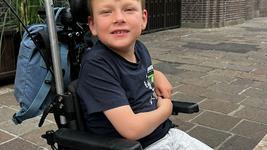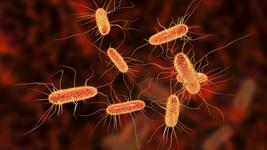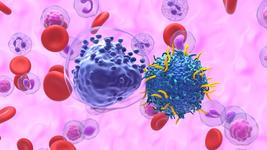Clinical Trial Update: Recent News From Editas Medicine and Allogene Therapeutics
CMN Intelligence - The World’s Most Comprehensive Intelligence Platform for CRISPR-Genomic Medicine and Gene-Editing Clinical Development
Providing market intelligence, data infrastructure, analytics, and reporting services for the global gene-editing sector. Read more...
FDA grants orphan drug designation to Editas Medicine's EDIT-301 for sickle cell disease
Editas Medicine announced last week that it has received an FDA orphan drug designation for EDIT-301, an investigational, gene-editing therapeutic candidate for sickle cell disease (SCD). EDIT-301 is designed to be a one-time treatment for SCD that works by reactivating foetal haemoglobin (HbF) production, thereby compensating for the lack of functional adult haemoglobin in individuals with SCD.
EDIT-301 is developed from SCD patient cells, and is being evaluated in the ongoing Phase 1/2 Ruby trial. Clinical data released from that trial so far revealed that EDIT-301 confers a sustained increase in foetal haemoglobin production, and has the potential to provide a one-time, durable treatment benefit for people living with severe SCD.
Reactivation of foetal haemoglobin via a CRISPR-Cas12a ribonucleoprotein
Specifically, EDIT-301 is developed using a CRISPR-Cas12a ribonucleoprotein that is designed to enhance the HBG1/2 promoter region in the beta-globin locus of patient-derived haematopoietic stem cells (HPSCs). Naturally-occurring HbF-inducing mutations at the HBG1/2 region support the clinical relevance of using gene editing to enhance the HBG1/2 promoter, and this strategy has been shown to increase the red blood cell levels of HbF.
EDIT-301 is the first experimental medicine in development using CRISPR-Cas12a gene-editing technology.
Positive clinical data for EDIT-301 in SCD so far
In December 2022, Editas announced positive safety and efficacy data from the first two patients dosed in the RUBY trial. The data revealed successful neutrophil and platement engraftment by 29 days and 37 days, respectively, in both patients dosed so far with an EDIT-301 infusion. The company also reported that neither of the patients experienced any vaso-occlusive events (VOEs) since treatment with EDIT-301, at five and 1.5 months follow up, respectively. VOEs are the most commonly encountered complication in severe SCD, and these occur when small blood vessels get blocked because of sickled red blood cells which tend to be stiffer than healthy cells, and because the defective form of haemoglobin seen in SCD (haemoglobin S) renders the red blood cell membranes sticky.
Five months after treatment with EDIT-301, both patients exhibited an increase the levels of HbF, and the safety profile overall was consistent with autologous haematopoietic stem cell transplant and the necessary pre-conditioning regimen. No serious adverse events occurred, and no adverse events reported were related to treatment with EDIT-301.
In August 2020, the company was granted Rare Pediatric Disease Designation for EDIT-301 as a potentially best-in-class treatment for SCD in children from birth to 18 years. EDIT-301 is also being evaluated in a separate Phase 1/2 trial (EDITHAL trial) for the related disorder tranfusion-dependent beta thalassemia (TDT).
Editas Medicine stated in its press release that is will present clinical data updates from the RUBY trial twice in 2023, mid-year and again by mid-end. The company also revealed that it is on track to dose 20 patients in the RUBY trial by year-end.
Allogene Therapeutics presents interim Phase 1 data on ALLO-316 in renal cell carcinoma
Allogene Therapeutics presented interim Phase 1 data from the ongoing TRAVERSE trial of ALLO-316 in renal cell carcinoma (RCC) at the American Association for Cancer Research (AACR) Annual Meeting, which was held in Florida last month. The dose escalation Phase 1 trial is enroling patients with advanced or metastatic RCC who have progressed on standard therapies that include an immune checkpoint inhibitor and a VEGF-targeting therapy. Emerging data from this trial demonstrate the potential of an allogeneic (i.e. donor-derived) CAR T-therapy to treat CD70-expressing RCC.
TALEN-edited CAR-T cell therapy designed to target CD70, to treat multiple tumour types
Allogene Therapeutics is developing ALLO-316 to treat RCC as well as several blood cancers that express the cell-surface antigen CD70. The expression of CD70 is limited in healthy tissues, which makes it an attractive anti-tumour target. ALLO-316 is an allogeneic cell therapy, i.e., it is generated in vitro from healthy donor T cells. Following isolation from donors, T cells are transduced with a lentivirus to express a CD70-targeting chimeric antigen receptor (CAR).
Cellectis’ TALEN® gene-editing technology is used under licence to further develop ALLO-316. The T cell receptor (TCR) locus, TRAC, in the donor-derived cells is disrupted to eliminate the risk of graft vs host disease. The CD52-encoding gene is also TALEN-disrupted in ALLO-316. This is a common feature for allogeneic CAR-T cell therapies, in which an anti-CD52 antibody is administered prior to CAR-T cell therapy to suppress the patient’s immune system and allow the CAR-T cells to stay engrafted for full therapeutic effect. CD52 disruption renders the CAR-T cells resistant to this treatment.
Single infusion of ALLO-316 demonstrates promising anti-tumour activity in CD70-expressing RCC
The TRAVERSE trial is expected to enrol 120 adult participants, who will each receive a single dose of intravenously adminstered ALLO-316 after a lymphodepletion regimen comprising fludarabine, cyclophosphamide, and Allogene’s CD52 monoclonal antibody, ALLO-647.
As of the March 23, 2023 data cutoff, 19 patients were enroled in the Phase 1 trial, 10 of whom had confirmed CD70-expressing RCC. In the ongoing dose escalation phase of the TRAVERSE trial, patients receive lymphodepletion followed by ALLO-316 at one of four cell dose levels (DL1= 40 million cells, DL2= 80 million cells, DL3=120 million cells, DL4= 240 million cells). The data reported to date is primarily from the DL1 and DL2 cohorts.
According to the company's press release, anti-tumour activity was primarily observed in patients with tumours confirmed to express CD70. Among 18 patients evaluable for efficacy, the disease control rate was 89%, while in the 10 patients with CD70-expressing tumours, the disease control rate was 100%, which included three patients who achieved partial remission (two confirmed, one unconfirmed).
The longest response lasted until month eight, and the company reported a trend toward greater tumour shrinkage in patients with higher levels of CD70 expression. The clinical data also support the potential of Allogene's DAGGER technology to increase persistence of the AlloCAR T cells, with demonstrated suppression of host T cells and marked peak expansion of ALLO-316 despite the low doses used.
ALLO-316 adverse event profile consistent with autologous CAR T-cell therapies
There were 19 patients evaluable for safety. To date, ALLO-316 has demonstrated an adverse event profile generally consistent with autologous CAR T therapies. A single dose-limiting toxicity of Grade 3 autoimmune hepatitis was observed in the DL2 cohort. Cytokine release syndrome (CRS) was all low-grade with the exception of one Grade 3. Neurotoxicity was generally low grade and reversible with most events being fatigue or headache. Infections occurred in eight patients of which four were Grade 3+ including one Grade 5 respiratory failure due to COVID-19 infection deemed unrelated to study treatment. Grade 3+ prolonged cytopenia was observed in three patients (16%). No cases of immune effector cell-associated neurotoxicity syndrome or graft-versus-host disease (GvHD) were reported.
Allogene Therapeutics announced in March 2022 that the FDA had granted Fast Track Designation for ALLO-316, for the treatment of RCC in patients where standard therapies have failed.
We will continue to share updates on EDIT-301 and ALLO-316 as they emerge.
You can find all our previous news articles about gene-editing clinical trials here. For a complete overview of CRISPR IND approvals and ongoing gene-editing trials, check out CRISPR Medicine News' Clinical Trials Database.
To get more of the CRISPR Medicine News delivered to your inbox, sign up to the free weekly CMN Newsletter here.
Tags
ArticleNewsClinical News UpdatesRenal Cell CarcinomaSickle Cell Disease, SCDSolid Tumor AdultSolid TumoursBlood diseaseCancerRare DiseaseCas12aTALENsAllogene Therapeutics, Inc.Editas Medicine, Inc.
CLINICAL TRIALS
Sponsors:
Base Therapeutics (Shanghai) Co., Ltd.
Sponsors:
Base Therapeutics (Shanghai) Co., Ltd.







